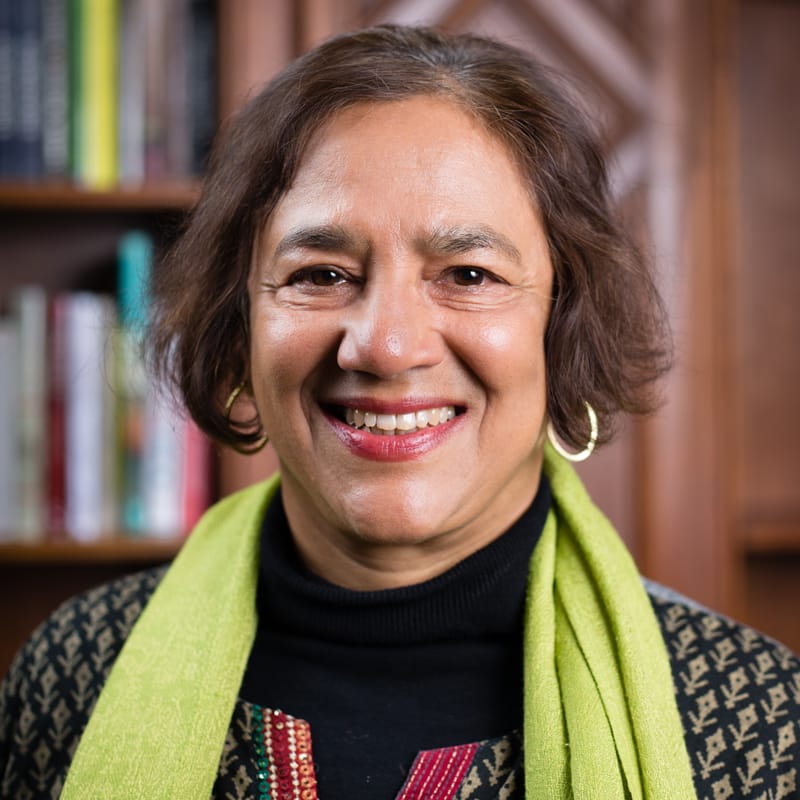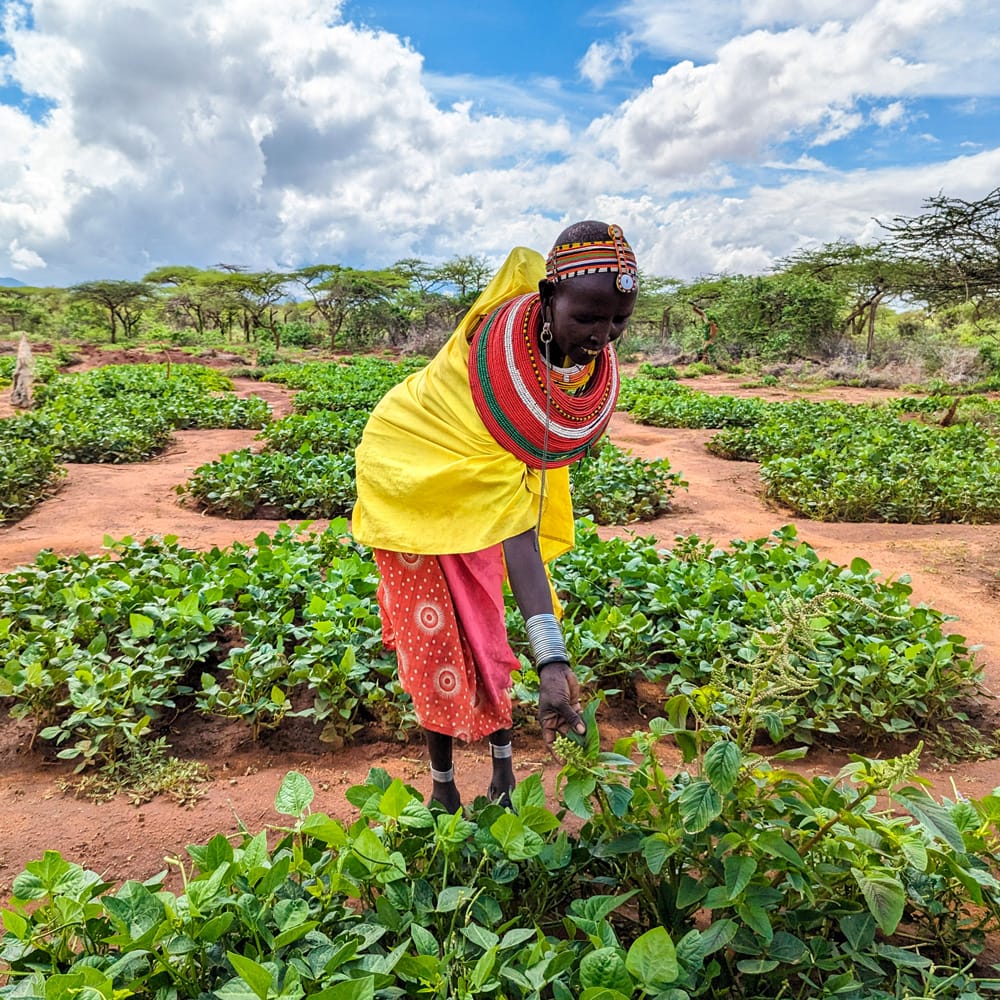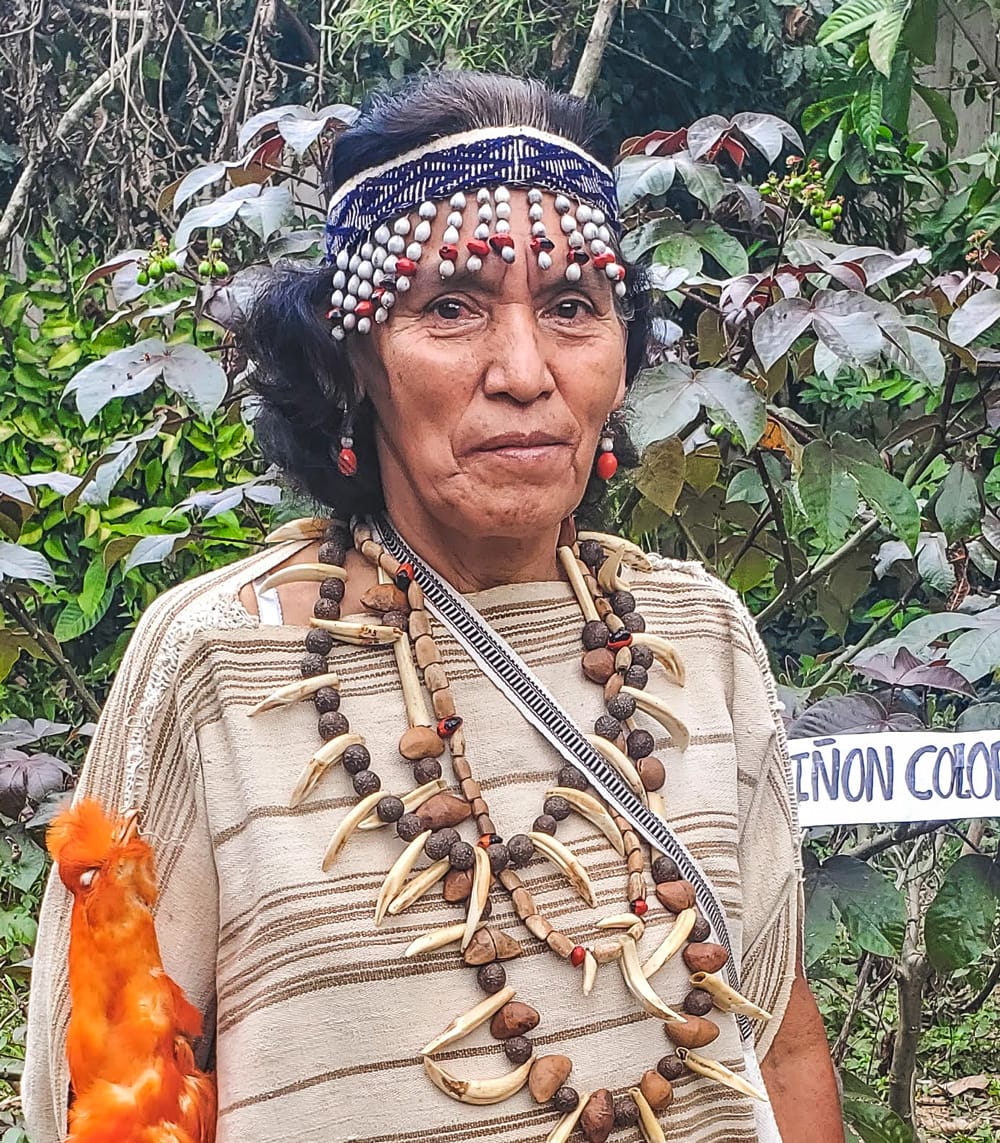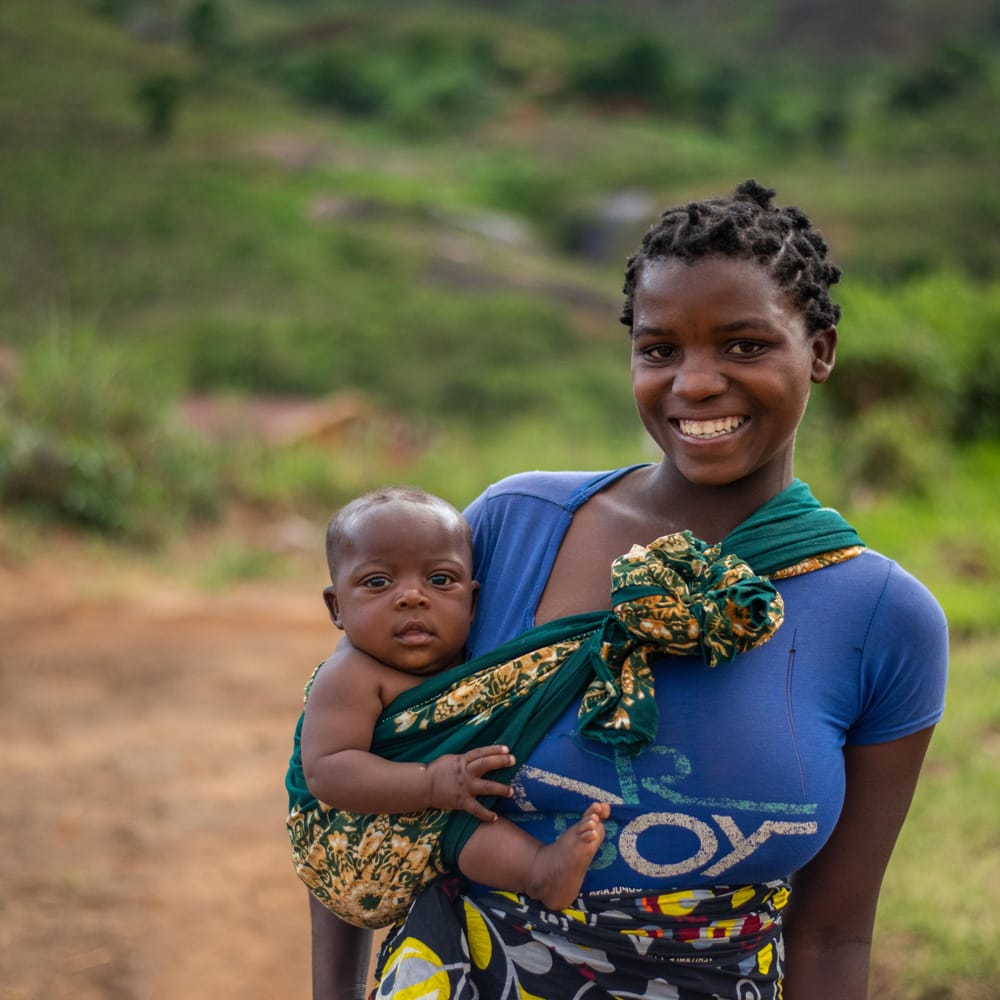
Dr. Alaka Wali
Centering women is a core tenant of Legado’s 360° Community-Led Change approach—and a critical part of advancing climate justice in places important for biodiversity, many of which are stewarded by Indigenous and local communities. In this Q&A, Legado Board Member, anthropologist, and Curator Emerita at Chicago’s Field Museum Dr. Alaka Wali shares why centering women is absolutely crucial to Legado's approach.
Legado: How does the research support centering women’s leadership in the pursuit of Thriving Futures?

Mparkenoi Lenkurikuri in the community garden outside the Lolkunyiani Maternity Shelter in Ngilai, Kenya | Legado
Why are women more likely to be interested in championing conservation and community well-being?
What does female leadership look like?

Maria Gonzalez of Koribeni, Peru | Legado
How is Legado’s approach to centering women unique?
Nowadays, more NGOs and governmental organizations understand that they have to include women for conservation to work. But we’ve been doing this from the beginning because we understand that women have a way of tying all their community’s concerns together. They don't tend to separate between, for example, their livelihoods, their health or their children’s well-being. Because men have been drawn so much into the market economy, it's sometimes easier for the women to grasp the integrated nature of these concerns.
Legado’s approach isn’t just to include women in a cursory manner. Instead, we try to privilege the existing cultural resources that people have and strengthen the distinct cultural perspectives of these communities. Often the ways women’s roles are respected and how the land and environment are valued are grounded in those cultural values and beliefs. If you don’t think about the cultural values people have, you're likely to fail. Because the long-term maintenance of those kinds of endeavors won’t happen if people don't see how it fits with their cultural values and beliefs.

A community member smiles with her child near their home in Curuca, Mozambique | Legado
Dr. Wali has written numerous articles about the importance of community-led approaches to conservation and sustainability, producing some of the scholarship that underpins Legado’s radical approach. Here are a few we recommend to learn more:
- Centering Communities in Conservation through Asset-Based Quality of Life Planning - 2023. This study is co-authored by Dr. Tita Alvira, Legado’s Chief Partnerships and Programs Officer and Ana Lemos, Legado's Deputy Director of Programs.
- Biocultural approaches to well-being and sustainability indicators across scales - 2017. Co-authored by Dr. Tita Alvira, this study explores how building on local cultural perspectives can support both well-being and sustainability.
- A new approach to conservation: using community empowerment for sustainable wellbeing - 2017. Co-authored by Dr. Tita Alvira, this study uses an asset-based approach to integrating conservation and community well-being.
- Working towards and beyond collaborative resource management: Parks, people, and participation in the Peruvian Amazon - 2007. A close look at Dr. Wali and her team’s work doing participatory research in conservation in the Peruvian Amazon.
